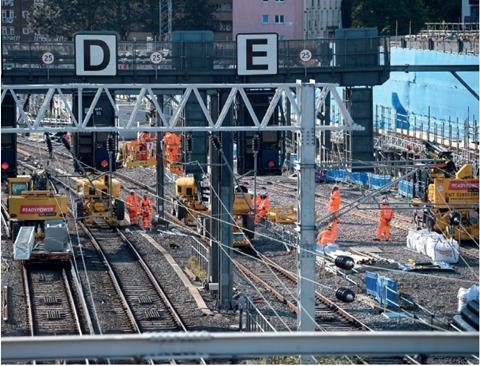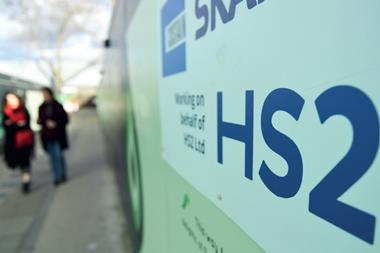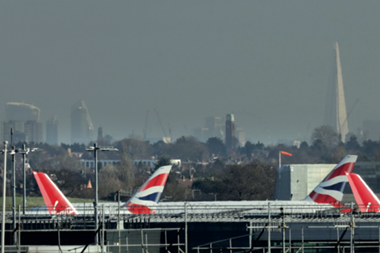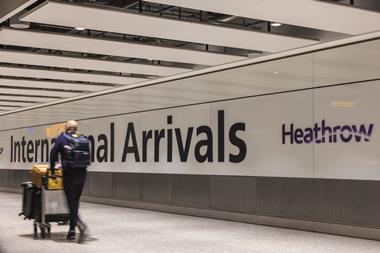The UK government’s decision to scrap the northern leg of the country high-speed rail infrastructure project HS2 has caused consternation among both institutional real estate and infrastructure investors.
For the former, there are signs of unbridled fury. “It’s madness to stop,” says Hugo Llewelyn, CEO of specialist real estate investment manager Newcore. “Unsatisfactory at every level. A horror show.”
The cancelling of HS2 between Birmingham and Manchester has the potential to undermine real estate investments in the North of England, and also to damage investors’ perceptions of the UK’s infrastructure market.
Aside from the impact the decision has on the UK’s ‘levelling-up’ agenda, there are wider implications to these broken promises, Llewelyn suggests. He fears the government “simply hasn’t understood infrastructure risk”.

Melanie Leech, CEO of the British Property Federation, says: “The three key words for business and investors are trust, confidence and partnership. By cancelling the HS2 line, the government is undermining decades of planning by local and mayoral authorities and businesses of all sizes, and sending a message that this country cannot be relied upon to commit to and deliver long-term infrastructure projects.”
It was notable that the National Infrastructure Commission came out with criticisms this week. The body was set up to monitor the UK’s infrastructure needs and make recommendations to the government, and its commissioners include deputy chair Julia Prescot, co-founder of major institutional infrastructure fund manager Meridiam.
John Armitt, chair of the National Infrastructure Commission, believes the decision is not only “deeply disappointing” but also leaves “a major gap in the UK’s rail strategy around which a number of city regions have been basing their economic growth plans”.
For global institutional investors, the decision on HS2 looks to undermine recent attempts by the UK government to call on them to direct more funding to the country’s infrastructure needs.
Simon Montague, corporate affairs director at Global Infrastructure Investor Association (GIIA), whose members include seven of the 10 largest constituents of IPE Real Assets’s top 100 infrastructure investors ranking, says: “The issues of political instability and lack of visibility of a project pipeline are two of the three biggest barriers to infrastructure investors when comparing the UK with other global markets.
“The decision to cancel the northern leg of HS2 is unlikely to improve perceptions, when the UK is already being outstripped by the huge subsidy incentives offered by the US and EU, with which it cannot compete. There is work to be done in resetting the UK’s historic reputation as a compelling safe haven for investors.”
“The decision to cancel the northern leg of HS2 is unlikely to improve perceptions, when the UK is already being outstripped by the huge subsidy incentives offered by the US and EU, with which it cannot compete”
Simon Montague
Gregg McClymont, executive director of public affairs for Europe at Australia-headquartered global infrastructure fund manager IFM Investors, says: “HS2’s soaring costs and dismemberment demonstrate the risks to taxpayers of major infrastructure projects in which they are entirely on the hook for cost overruns and in this case never see the asset completed.”
IFM Investors, which is owned by Australian superannuation funds, has previously proposed ways to the UK government to funnel more international pension capital into post-Brexit Britain.
McClymont, a former UK politician who joined IFM in 2020, goes on to say: “The fundamental question is whether this sorry tale leads to a full UK government review of infrastructure financing models to encourage public-private partnerships.

“Around the world, governments increasingly want to share risks and harness the infrastructure expertise of major investors, especially pension funds, since it is the fast-growing form of institutional capital with the ability to invest long-term equity into greenfield projects.
“Something positive could emerge from HS2’s demise – deeper engagement between UK government and global pension fund infrastructure investors to deliver new procurement models where there is financial and intellectual collaboration between public and private, all the way through from the ‘blank sheet of paper’ to the ribbon-cutting ceremony”.
One area of HS2 project is still in the balance – an extension of the line that would mean it would start at Euston, in central London, rather than Old Oak Common. According to media reports, this extension would be predicated on the government attracting private investment for a project has thus far been publicly funded.
Llewelyn is sceptical about the ability to attract interest from investors. “They won’t be queuing up,” he says.
Investors sceptical of plans to reinvest HS2 savings
The government took its time this week to confirm press reports about the potential scaling back of HS2 during the week of the Conservative conference. The reasoning behind Prime Minister Rishi Sunak’s decision to drag out the official announcement became a story in itself.
Several sources suggest that it was more than “conference speech vanity” and was in fact a desperate scramble by the government to cobble together some £36bn infrastructure projects that would be the recipients of “reinvesting every penny” from the HS2 savings.

The problem is that many examples given have already been promised – such as the extension of the A1 road in Northumberland, which was the highlight of the Conservative conference nine years ago.
“It’s not yet clear how the collection of schemes announced today will address the gap left behind by HS2,” said Armitt.
Can investors trust the Prime Minister’s promise to spend that £36bn elsewhere? Chris Oglesby, the CEO of Manchester-based property company Bruntwood, says: “The plan that was announced is light on detail, vague on timescale and unclear as to how it can be implemented.”
Paul Swinney, director of policy and research at the Centre for Cities, says: “For those watching how the government delivers on its levelling-up promises, it is policies in these areas they should be keeping a close eye on.”
He adds: “Greater rail capacity and faster trains from the South… aren’t by any means the only answer.” He wants a focus on “local transport, which includes trains but also means trams and other forms of travel”.
The diverting of funds has also disappointed from an ESG perspective. Peter Connolly, CEO of Northern housebuilder Igloo, has “reservations about the fact that these funds are not being directed toward the rail sector as initially promised”. He says: “Instead, they are being redirected to road projects.”
The BPF is clearly underwhelmed by the government’s list of projects. “New public investment in regional transport networks is vitally needed, but Network North is at present just a slogan,” Leech says.
“The government must urgently flesh out its proposals and commit to providing genuinely new money with a cast iron commitment and a clear timeline for delivery. And it must do so in genuine partnership with local and mayoral authorities as well as with the investors and business partners who will be essential to delivery.”



















